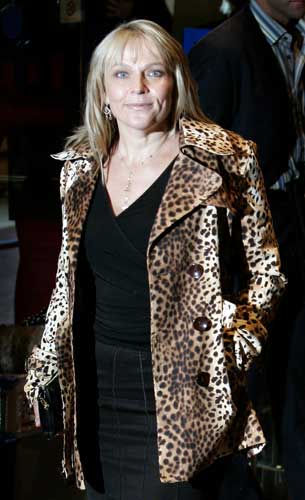Mills & Boon becomes totally 'Shameless'
Its romantic fiction sells around the globe but is scorned by the literati. Now the BBC is to celebrate its centenary

Its published authors include such greats as P G Wodehouse and Jack London. Helen Fielding, author of the hugely successful Bridget Jones novels, was rejected for not being good enough. Now, in celebration of its 100th anniversary, the Mills & Boon imprint is launching itself on the television-viewing public.
Much loved by fans of romantic fiction, the books are a publishing phenomenon. A Mills & Boon paperback is sold in a UK bookshop, on average, once every five seconds and is translated into 25 languages. Mills & Boon has a stable of 1,300 authors, many of whom make millions from their work. As a whole, the publisher sells 35 million titles across the globe.
Mills & Boon has in recent years shifted its focus from virginal heroines and brooding, saturnine heroes to include subjects such as crime and the paranormal. A TV drama in celebration of its centenary will be written by Emma Frost, whose previous credits include the profoundly unromantic Shameless.
Consuming Passion: 100 Years of Mills & Boon is currently being shot in and around London and will air this autumn on BBC4. It promises to be "very raunchy", according to the producers.
"The 90-minute drama will interweave the stories of three very different women, and shed light on the impact and influence the books had on women's lives over the last century," said Ben Stephenson, head of drama commissioning at the BBC.
The drama is based on the lives of the actual people behind the scenes at the publishing house. The first story is set in 1908 and concerns Mary, wife of Charles Boon, Mills & Boon's wheeler-dealer co-founder. While Charles struggled to establish his business in London, he and his wife were fighting another battle – in the bedroom. Its outcome would determine the future of Mills & Boon, which came to specialise in the low-brow, high-romance genre.
Another story in the drama brings the publishing story up to the present day. Kirstie, a university lecturer in literature and feminist studies, is in a failing relationship with her partner. Bored and frustrated, she is lecturing to students on the Mills & Boon phenomenon when a young stranger enters her life.
The BBC has also produced a documentary, How to Write a Mills & Boon, based on the guides the publisher itself produces, offering advice to would-be novelists. The author Stella Duffy will present the programme in the autumn.
Despite the famous names who have written for the imprint, the very mention of Mills & Boon is enough to cause sniggers of derision among most of the literati.
Joanna Bowring at Mills & Boon said: "I think it's partly because the books are cheap. They are considered disposable literature. And they're also almost exclusively read and written by women – and so have never been taken seriously."
While the heroines have evolved since the early days to reflect changes in women's lives, the heroes remain much as they were a century ago. "There's always been a subtle undercurrent of force throughout the books, and that's never changed from the earliest ones," said Ms Bowring. "Even later, when other aspects are influenced by feminism and by the shifting attitudes outside the novel, the men remain masterful and stern."
Subscribe to Independent Premium to bookmark this article
Want to bookmark your favourite articles and stories to read or reference later? Start your Independent Premium subscription today.

Join our commenting forum
Join thought-provoking conversations, follow other Independent readers and see their replies